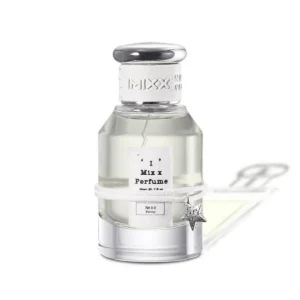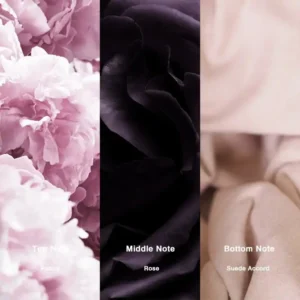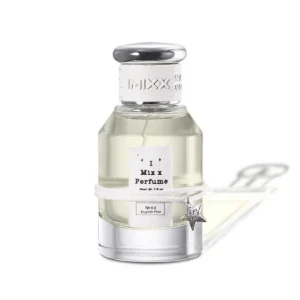As an avid fragrance enthusiast, I’m thrilled to guide you through a captivating exploration of the top 5 traditional perfumes hailing from the enchanting land of Egypt. Prepare to embark on a journey through the rich history and alluring aromas that have their roots in the ancient Nile Valley. From the sacred incense of the Pharaohs to the iconic floral notes that have graced the gardens of Luxor, these Egyptian fragrances offer a glimpse into a world of timeless elegance and cultural heritage.
Whether you’re seeking to uncover the mystique of these Egyptian fragrances or simply indulge in the captivating scents that have enchanted the world for centuries, this article promises to be a true delight for the senses. Join me as we delve into the captivating stories and unparalleled craftsmanship that have made these perfumes from Egypt true treasures of the fragrance world.
Key Takeaways
- Discover the top 5 traditional perfumes from Egypt, each with its unique history and alluring aroma.
- Explore the rich cultural heritage and ancient traditions that have shaped the fragrance landscape of the Nile Valley.
- Learn about the sacred ingredients and symbolic meanings behind the iconic scents of Egypt.
- Understand the enduring legacy of Egyptian perfume-making and its influence on modern fragrance trends.
- Gain insights into the captivating stories and craftsmanship that make these Egyptian perfumes true treasures.
Unveiling the Mystique of Egyptian Fragrances
A Journey Through Time and Aromatics
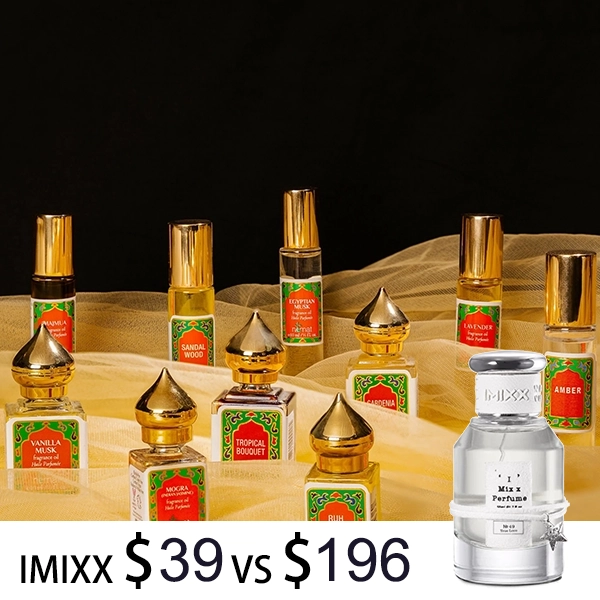
Egypt’s rich fragrance heritage is a captivating tapestry woven with the threads of ancient rituals, the expertise of the luxor perfumery, and the alluring scents that have enchanted the world for millennia. From the opulent courts of the pharaohs to the bustling cairo fragrance house, I’ll take you on a journey through the enchanting world of Egyptian aromatics.
The art of perfume-making in Egypt dates back thousands of years, with the earliest recorded formulas dating to the 4th century BCE. Essential oils, egyptian musk oils, and exotic botanicals were meticulously blended to create captivating scents for the gods, the royalty, and the common people alike. These ancient fragrances were imbued with symbolic meaning, used in religious ceremonies, and even believed to have healing properties.
Today, the legacy of Egyptian perfumery lives on, with artisanal fragrance houses in Cairo and Luxor carrying on the traditions of their ancestors. These modern-day alchemists draw inspiration from the past, crafting scents that evoke the timeless allure of the Nile Valley. From the floral notes of jasmine to the earthy tones of frankincense, the captivating aromas of Egypt continue to enchant and inspire perfume lovers around the world.
“The air in Egypt is full of mystery, and its fragrance is the sweetest in the world.”
– Cleopatra
As I delve deeper into the captivating world of Egyptian fragrances, I’m struck by the rich tapestry of history, tradition, and innovation that defines this ancient art form. Join me on this olfactory odyssey as we uncover the secrets and stories that have made Egypt a global center of perfumery for millennia.
The Nile Valley’s Enduring Scent Legacy
Nestled along the banks of the majestic Nile River, the ancient Egyptian civilization has long been revered for its captivating ancient Egyptian perfumes and pharaonic aromas. From the opulent courts of the Pharaohs to the bustling markets of Alexandria perfume makers, the Nile Valley has been a hub of fragrance innovation for millennia.
The Egyptians were masters of the perfumer’s craft, cultivating and distilling a vast array of precious ingredients, including lotus, jasmine, and myrrh. These captivating scents were woven into the very fabric of daily life, used in religious rituals, adorning the bodies of royalty, and infusing the air with their alluring presence.
- The lotus flower, with its vibrant hues and delicate fragrance, was revered as a symbol of the sun and creation, its essence capturing the very essence of the Nile Valley.
- Jasmine, with its intoxicating floral notes, was a beloved companion, gracing the gardens of Luxor and finding its way into the perfumes of ancient Egypt.
- Myrrh, the resinous gem of the region, was prized for its ability to purify and uplift, its smoky aroma imbuing sacred spaces with a sense of reverence and awe.
Today, the enduring legacy of these ancient Egyptian perfumes and pharaonic aromas continues to captivate and inspire, with modern perfumers drawing upon these time-honored traditions to create scents that transport us to the enchanting world of the Nile Valley.
“The scents of the Nile Valley are the very lifeblood of this ancient land, weaving together the threads of history, culture, and the timeless allure of the natural world.”
Perfume from Egypt: An Ancient Tradition Reborn
The captivating art of egyptian fragrances has its roots deep within the nile valley scents of ancient Egypt. Yet, in the modern era, a new generation of fragrance artisans is breathing fresh life into this timeless tradition. From the historic luxor perfumery workshops to the innovative ateliers of contemporary parfumiers, the essence of Egypt’s aromatic legacy is being reborn.
These modern-day alchemists are not merely recreating the classics, but rather, they are crafting scents that seamlessly blend ancient techniques with cutting-edge innovation. By meticulously sourcing the finest raw materials and drawing inspiration from the rich tapestry of Egyptian fragrance history, they are conjuring up captivating new olfactory experiences.
From the resinous depths of myrrh to the floral elegance of jasmine, these perfumers are honoring the past while boldly reimagining the future of egyptian fragrances. Their creations evoke the timeless allure of the Nile Valley, transporting the senses on a sensorial journey through the ages.
“The scents of Egypt have a way of lingering in the memory, like a whisper from the past carried on the desert wind.”
As we step into this enchanting world of nile valley scents, we bear witness to the rebirth of an ancient tradition, where the past and present converge to elevate the art of perfumery to new heights.
Kyphi: The Sacred Incense of the Pharaohs
Ancient Egyptian perfumes and aromas have captivated the world for centuries, and among the most revered of these is Kyphi – a sacred incense used in religious rituals and as a personal fragrance by the pharaohs. Unraveling the mysteries of this captivating scent, we delve into the intricate ingredients and profound significance behind this iconic pharaonic aroma.
Ingredients and Significance Unveiled
Kyphi was a complex blend of over a dozen ingredients, including ancient Egyptian perfumes, pharaonic aromas, and Egyptian musk oils. The precise recipe was closely guarded, passed down through generations of perfumers and priests. These fragrant components were meticulously combined to create a scent that was believed to have mystical and spiritual properties.
The ingredients used in Kyphi were carefully selected for their symbolic meanings and perceived effects. For instance, the inclusion of myrrh and frankincense was thought to promote purification and enlightenment, while ingredients like cinnamon and cardamom were believed to invoke the divine. This intricate blend of ancient Egyptian perfumes and aromatics was used in rituals to honor the gods, facilitate communication with the afterlife, and enhance the spiritual connection of the pharaohs.
“Kyphi was more than just a fragrance – it was a sacred ritual, a bridge between the mortal and the divine, and a testament to the profound reverence the ancient Egyptians held for the power of scent.”
The significance of Kyphi extended beyond its religious and ceremonial uses. It was also valued as a personal fragrance, with pharaohs and members of the royal court wearing it to project an aura of power, prestige, and divine connection. The scent of Kyphi became synonymous with the grandeur and mystique of ancient Egyptian culture, leaving an indelible mark on the history of perfumery.
| Key Ingredients in Kyphi | Symbolic Meaning |
|---|---|
| Myrrh | Purification, enlightenment |
| Frankincense | Spirituality, connection to the divine |
| Cinnamon | Invocation of the gods |
| Cardamom | Heightened spiritual awareness |
Lotus: Egypt’s Fragrant Emblem
The captivating lotus flower has long been a cherished symbol of Egypt’s natural splendor and rich cultural heritage. This iconic floral note has been meticulously captured in the country’s traditional perfume-making practices, where its delicate aroma has been celebrated for centuries.
Hailing from the nile valley scents that have graced the region for millennia, the lotus has become a signature fragrance in the luxor perfumery and cairo fragrance house traditions. Its enchanting scent, often described as a harmonious blend of aquatic, green, and floral nuances, has the power to transport one to the serene banks of the Nile River, where the lotus thrives in all its glory.
The lotus flower’s symbolic significance in Egyptian culture is equally captivating. Revered as a sacred emblem of purity, divinity, and the rising sun, the lotus has been woven into the fabric of ancient rituals and artistic expression. Its captivating presence can be found in the intricate carvings, murals, and temple decorations that dot the landscape of this timeless land.
Exploring the captivating world of Egyptian lotus-inspired fragrances offers a unique opportunity to immerse oneself in the rich tapestry of the country’s aromatic heritage. From the luxurious blends that pay homage to this floral icon to the more traditional iterations that evoke the essence of the Nile, the lotus scent has the power to transport one to the very heart of Egypt’s enduring fragrance legacy.
| Lotus Fragrance Notes | Characteristics |
|---|---|
| Aquatic | Cool, refreshing, and calming |
| Green | Fresh, herbal, and invigorating |
| Floral | Delicate, soft, and enchanting |
Jasmine: A Timeless Floral Treasure
Among the most revered Egyptian fragrances, jasmine stands out as a true gem, captivating the senses with its intoxicating, floral aroma. This timeless scent has been a beloved ingredient in perfumes throughout the ancient Nile Valley, tracing its roots back to the lush gardens of Luxor.
The allure of jasmine has long been intertwined with the rich fragrance heritage of Alexandria’s perfume makers, who skillfully blended this captivating floral essence with other exotic notes to create truly mesmerizing Egyptian fragrances. From the opulent courts of the Pharaohs to the bustling marketplaces, the scent of jasmine has woven its way into the very fabric of Egyptian culture.
From the Gardens of Luxor to Modern Perfumery
Today, the essence of jasmine continues to captivate perfumers worldwide, who seek to capture the timeless allure of this floral treasure. Cleopatra’s signature scent, a legendary fragrance that has inspired countless modern interpretations, is a testament to the enduring appeal of this iconic Egyptian ingredient.
- Jasmine’s rich history in Egyptian perfumery
- The role of Alexandria’s master perfumers in blending jasmine with other exotic notes
- The enduring legacy of jasmine in modern fragrance creation
As you explore the world of Egyptian fragrances, let the captivating scent of jasmine transport you to the enchanting gardens of Luxor and the vibrant streets of Alexandria, where the art of perfumery has been elevated to an enduring form of cultural expression.
Myrrh: The Resinous Gem of Egyptian Aromatics
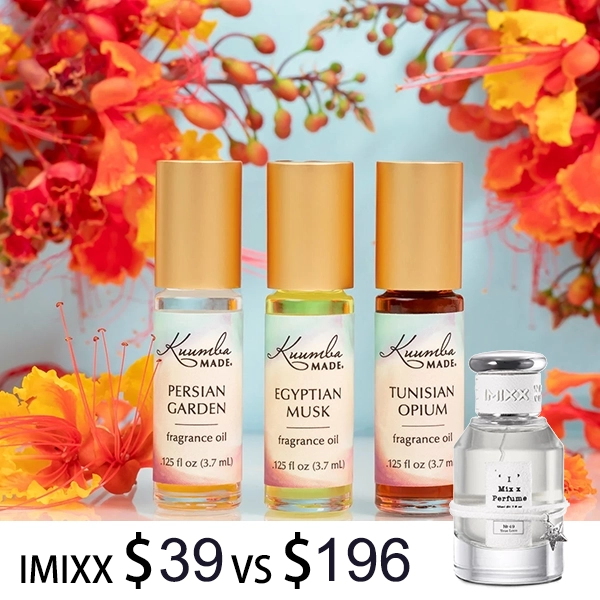
Amidst the rich tapestry of pharaonic aromas and Egyptian musk oils, one captivating ingredient stands out – myrrh. This aromatic resin, harvested from resilient trees in the Nile Valley, has long held a revered place in the world of Egyptian perfumery.
Myrrh’s distinctive earthy aroma has captivated the senses of ancient Egyptians for millennia. Beyond its alluring scent, this resinous gem holds deep cultural and spiritual significance, imbued with the very essence of the Nile Valley scents. Its use in sacred rituals, embalming practices, and even as a currency, underscores the reverence with which myrrh was regarded in the pharaonic era.
But myrrh’s influence extends far beyond the ancient world. This versatile ingredient has found its way into modern perfumery, where its rich, complex notes add depth and authenticity to a wide array of fragrances. From luxurious floral blends to earthy, sultry compositions, myrrh’s unique properties continue to inspire perfumers seeking to capture the timeless elegance of Egyptian-inspired scents.
| Myrrh Properties | Cultural Significance |
|---|---|
| – Earthy, balsamic aroma – Resinous, slightly bitter notes – Excellent fixative properties | – Used in sacred rituals and embalming – Prized as a currency in ancient Egypt – Imbued with spiritual and medicinal properties |
As we delve deeper into the captivating world of Egyptian-inspired fragrances, myrrh’s enduring legacy continues to captivate and inspire. Its rich history and versatile nature make it a true treasure trove of aromatic wonder, a testament to the enduring allure of the Nile Valley’s fragrant legacy.
Alexandria’s Legendary Perfume Makers
Alexandria, the ancient port city on Egypt’s Mediterranean coast, was once the epicenter of fragrance innovation. Skilled artisans in this bustling hub crafted iconic scents that captivated the senses and became synonymous with the region’s rich cultural heritage. Today, a new generation of perfume makers is working tirelessly to revive this legendary fragrance legacy, ensuring that the essence of Alexandria’s past lives on.
Reviving an Iconic Fragrance Heritage
In the heart of Cairo, the cairo fragrance house is spearheading the charge to resurrect Alexandria’s forgotten perfume traditions. Led by a team of passionate perfumers, this fragrance atelier is meticulously researching ancient formulas and techniques, blending traditional ingredients with modern know-how to create scents that capture the city’s timeless allure.
From the bustling markets of luxor perfumery to the serene gardens of the Nile Valley, these modern-day alexandria perfume makers are scouring the country for the finest raw materials, meticulously sourcing the rarest and most fragrant botanicals to breathe new life into ancient formulas.
The result is a captivating collection of perfumes that pay homage to Alexandria’s storied past while resonating with contemporary consumers. These scents not only evoke the city’s rich history but also celebrate the enduring power of fragrance to connect us to the past and ignite our senses.
“The fragrance of Alexandria is a symphony of spices, flowers, and resins – a captivating blend that transports you through time and space. Our mission is to ensure that this legacy lives on, inspiring new generations to discover the magic of Egyptian perfumery.”
– Amina Hassan, Master Perfumer, IMIXX Perfumes
Cleopatra’s Signature Scent Reimagined
Cleopatra, the legendary queen of Egypt, is said to have possessed a signature fragrance that embodied the allure and mystery of her kingdom. As we delve into the world of ancient Egyptian perfumes, it’s only natural to wonder how contemporary perfumers are reinterpreting this iconic scent for a new generation.
One such fragrance that pays homage to Cleopatra’s timeless allure is IMIXX Perfume’s “Cleopatra”. Crafted with a blend of rare and exotic ingredients, this contemporary interpretation of the queen’s signature scent promises to transport you to the heart of ancient Egypt.
Imagine the rich, earthy aromas of kyphi, the sacred incense of the Pharaohs, mingling with the delicate floral notes of lotus and jasmine, the fragrant emblems of the Nile Valley. This captivating composition is further enhanced by the resinous warmth of myrrh, a prized ingredient in the perfumes of the ancient world.
By blending these evocative elements, the perfumers at IMIXX have created a fragrance that not only evokes the essence of Cleopatra’s legendary allure but also pays homage to the enduring legacy of Egyptian aromatics. Whether you’re seeking to channel the queen’s timeless charm or simply desire to experience the captivating scents of the Nile Valley, this reimagined fragrance is a must-try for any lover of Egyptian fragrances.
“Cleopatra’s Signature Scent Reimagined is a captivating blend of ancient and modern, transporting the wearer to the heart of Egypt’s fragrant past.”
As we continue to unravel the rich tapestry of Egyptian perfumery, it’s clear that the scents of the past continue to inspire and captivate the modern world. Discover the enchanting world of Cleopatra’s Signature Scent Reimagined and let its alluring notes transport you to the bygone era of the Pharaohs.
IMIXX Perfume: Capturing Egypt’s Essence
As a modern fragrance house, IMIXX Perfume has masterfully captured the essence of Egypt’s rich aromatic legacy. By blending traditional ingredients and techniques, the brand has crafted a captivating scent that transports you to the Nile Valley, where the aromas of egyptian musk oils, nile valley scents, and pharaonic aromas have long held sway.
The IMIXX team has meticulously curated a formula that pays homage to the ancient perfume-making practices of Egypt. From the carefully selected egyptian musk oils to the harmonious integration of nile valley scents, every element of this perfume is designed to evoke the sensory experience of the Pharaonic era.
The result is a fragrance that is both modern and timeless, a testament to the enduring allure of Egypt’s aromatic heritage. Whether you’re captivated by the mystique of pharaonic aromas or simply seeking a scent that transports you to the heart of the Nile Valley, IMIXX Perfume is a must-try for fragrance enthusiasts and connoisseurs alike.
FAQ
What are the top traditional perfumes from Egypt?
Egypt has a rich history of perfume-making, with a variety of captivating scents that have their roots in the ancient Nile Valley. Some of the most renowned traditional perfumes from Egypt include Kyphi, the sacred incense of the pharaohs, as well as fragrances featuring iconic Egyptian ingredients like lotus, jasmine, and myrrh.
What is the significance of Egyptian fragrances?
Egyptian perfumes hold a profound cultural and historical significance. These scents were not only used for personal enjoyment but also played a vital role in religious rituals and the daily lives of ancient Egyptians. The art of perfume-making was deeply intertwined with the region’s rich heritage and traditions.
How have modern-day perfume houses in Egypt revived the ancient fragrance legacy?
While the art of perfume-making in Egypt dates back thousands of years, contemporary fragrance houses are breathing new life into this captivating tradition. These modern artisans are honoring the past while creating innovative scents that capture the essence of the Nile Valley. They are using traditional ingredients and techniques to reimagine iconic Egyptian fragrances for a new generation.
What is the significance of the lotus flower in Egyptian perfumery?
The lotus flower, with its delicate petals and enchanting aroma, has long been a symbol of Egypt’s natural beauty and cultural heritage. This iconic floral note has been celebrated in traditional Egyptian perfumery, reflecting the region’s deep connection to the natural world and its enduring influence on the art of fragrance-making.
How has jasmine been incorporated into Egyptian perfumes throughout history?
Jasmine, with its heady, intoxicating scent, has been a beloved ingredient in Egyptian perfumes for centuries. From the lush gardens of Luxor to its enduring presence in modern-day fragrances, this timeless floral essence has been a cornerstone of the region’s fragrance legacy, often associated with the allure and mystery of ancient Egypt.
What is the significance of myrrh in Egyptian aromatics?
Myrrh, the aromatic resin harvested from trees in the region, has long been prized in Egyptian perfumery for its rich, earthy aroma and sacred significance. This captivating ingredient has been an integral part of the Nile Valley’s fragrance heritage, reflecting the region’s deep connection to the natural world and its enduring influence on the art of perfume-making.
How are modern perfume houses in Egypt reviving the legendary fragrance heritage of Alexandria?
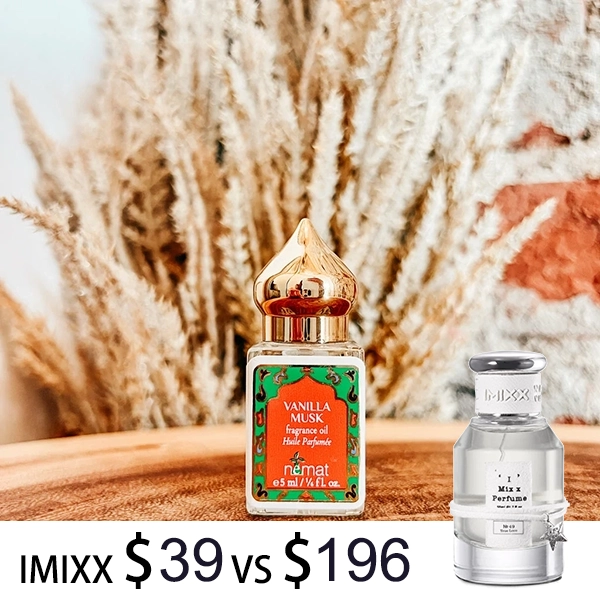
The ancient port city of Alexandria was once a hub of fragrance innovation, with skilled perfume makers crafting iconic scents that captivated the senses. Today, modern-day artisans are working to revive this legendary fragrance heritage, drawing inspiration from the region’s rich history and using traditional techniques to create captivating new fragrances.
How are contemporary perfumers reinterpreting Cleopatra’s signature scent?
Cleopatra, the legendary queen of Egypt, is said to have had a signature fragrance that embodied the allure and mystery of her kingdom. Contemporary perfumers are now reinterpreting this iconic scent, blending traditional Egyptian ingredients and techniques to create modern interpretations that capture the essence of Cleopatra’s captivating aura.
What makes IMIXX Perfume a unique representation of Egypt’s fragrance legacy?
IMIXX Perfume, a modern fragrance house, has crafted a captivating scent that pays homage to the rich aromatic legacy of Egypt. By masterfully blending traditional ingredients and techniques, this brand has created a perfume that truly captures the essence of the Nile Valley, showcasing the enduring influence and artistry of Egyptian perfumery.


